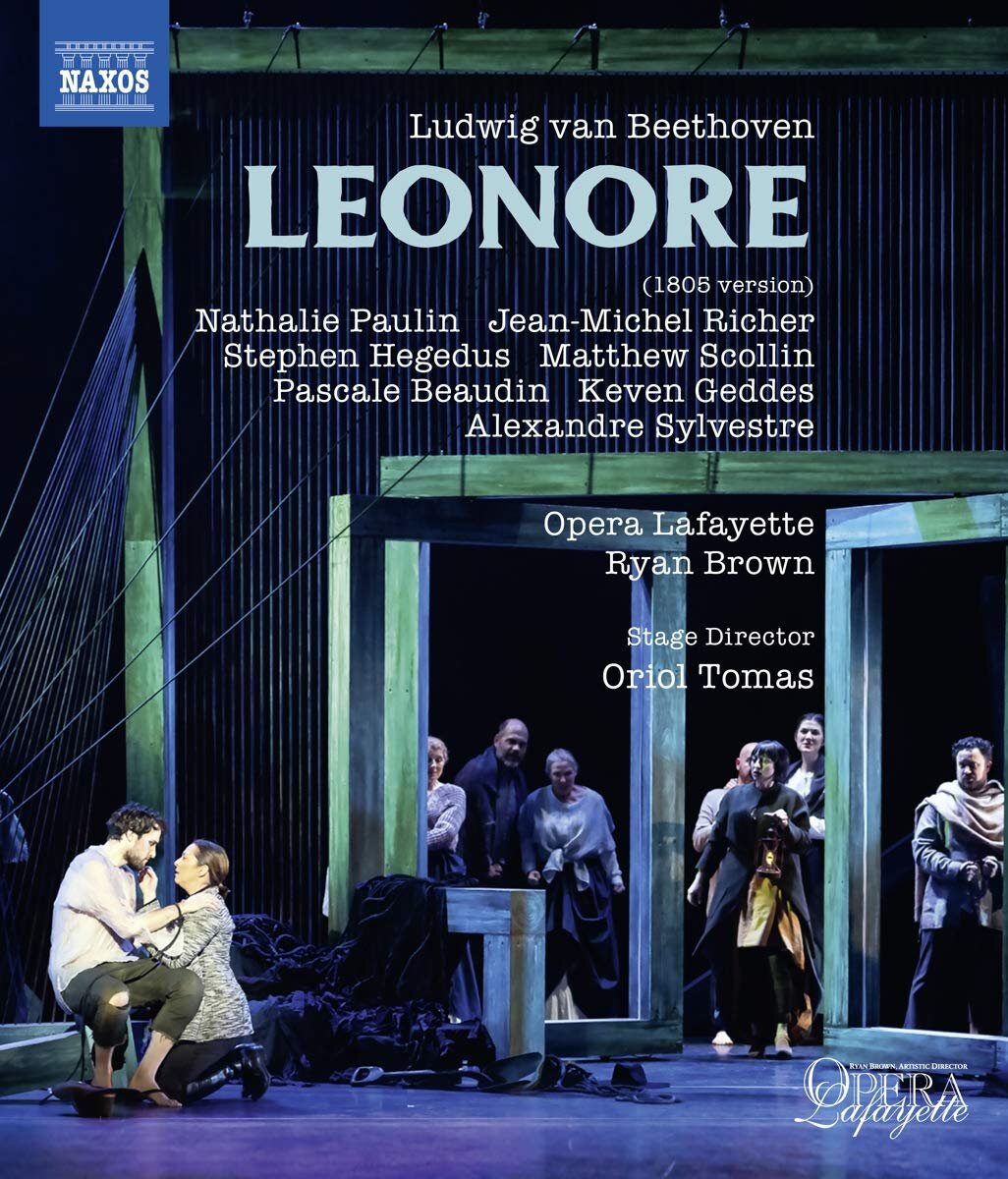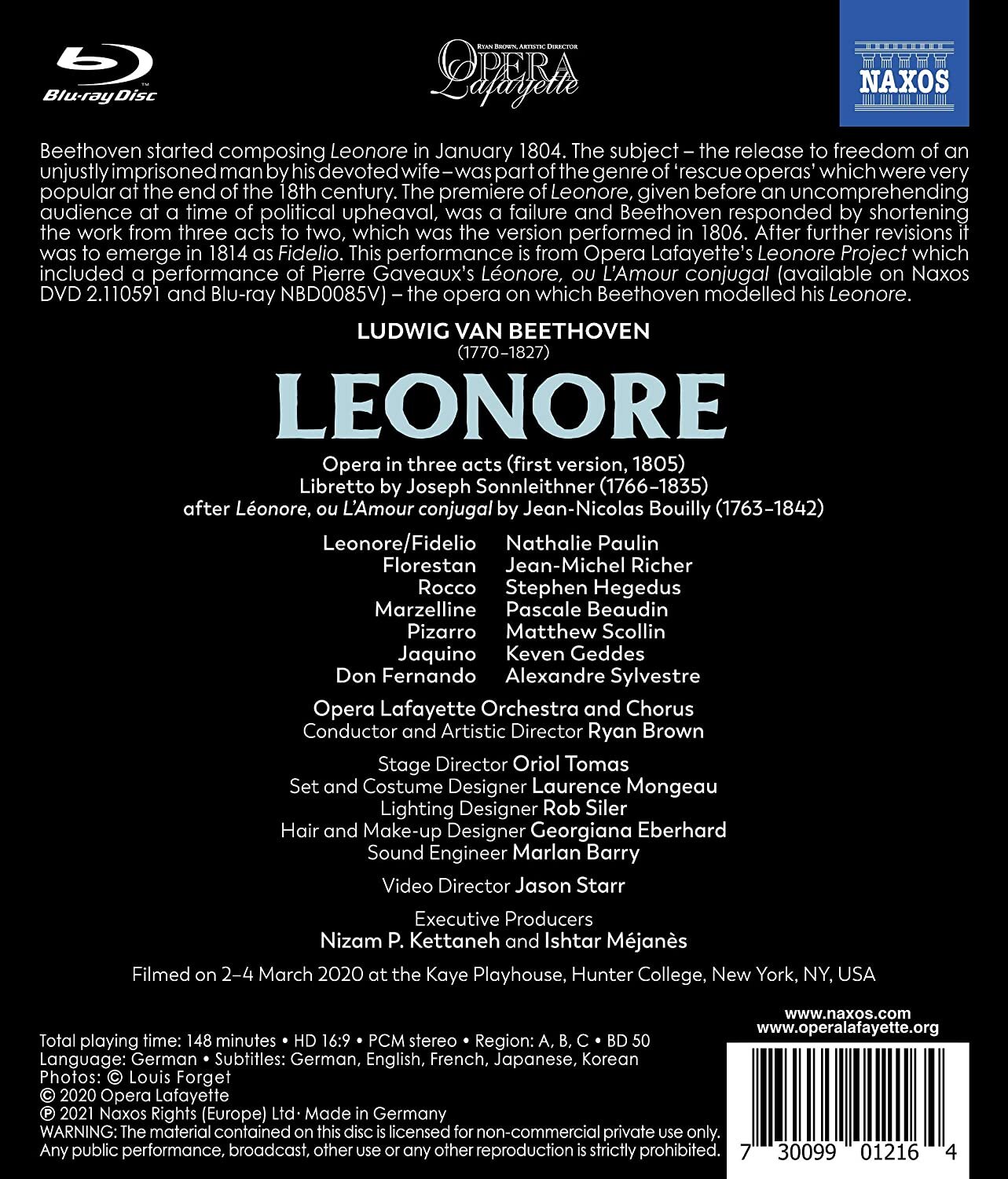

Beethoven Leonore opera to libretto by Joseph Sonnleithner. (This is the 1805 version of “Leonore/Fildelio.”) Performed 2020 by Opera Lafayette as directed by Oriol Tomas at the Kaye Playhouse, Hunter College, New York. Stars Nathalie Paulin (Leonore/Fidelio), Jean-Michel Richer (Florestan), Stephen Hegedus (Rocco), Pascale Beaudin (Marzelline), Matthew Scollin (Pizarro), Keven Geddes (Jaquino), and Alexandre Sylvestre (Don Fernando). Ryan Brown conducts the Opera Lafayette Orchestra and Chorus. Set and costume design by Laurence Mongeau; lighting design by Rob Siler; hair and make-up design by Georgiana Eberhard; sound engineering by Marlan Barry. Directed for TV by Jason Starr. Sung in German. Released 2021, disc has PCM stereo sound only. Grade: NA
We usually don’t cover operas that are recorded in stereo sound only. But we make an exception because this fills in a gap in our coverage of Beethoven’s Leonore/Fidelio opera adventures. There are 3 versions of what we call “Leonore/Fidelio,” and this 1805 effort was the earliest of them. It’s offered here by the highly respected and specialized Opera Lafayette, which focuses mostly on French Baroque works. One of those French operas, Léonore; ou, L'amour conjugal by Pierre Gaveaux, was the inspiration for Beethoven to do a German language version, and this was Beethoven’s first stab at it. Today the 1805 version is mostly ignored, but some experts say it’s better than Beethoven’s later revisions in 1806 and 1814.
David Baker, writing in the June 2021 Opera News at pages 60-61, says that fans of Fidelio “can find a lot to enjoy in this alternative take.” It appears the biggest difference between the 1805 Leonore and the 1814 Fidelio is that the role of the flighty Marzelline is much bigger in 1805 than in 1814. It would doubtless be irresistible for director Tomas and conductor Brown to focus on Marzelline in their show, but Baker stills opines that they overdo this. Peter Quantrill also reviewed this in the February 2021 Gramophone (page 74). He points out that this is an academic rather than a fully professional production with “boxy acoustics, over-distant recording, and wobbly camerawork." Conclusion: this title is probably a fine appetizer for both Beethoven and opera nerds to munch on, but don’t expect it to be like something done at the Met.
Here’s a (weak) trailer from Naxos:
OR
